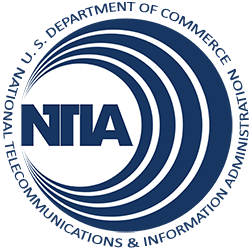Broadband’s ability to expand educational and employment opportunities is especially meaningful for Americans who are deaf or hard of hearing, a community that faces unique challenges in education and that suffers from a rate of unemployment much higher than the national average. Communication Service for the Deaf, Inc. (CSD) intends to expand broadband adoption among people who are deaf and hard of hearing and provide them with online tools to more fully participate in the digital economy. The project proposes to employ a combination of discounted broadband service and specialized computers, technology training from an online state-of-the art support center customized to the community’s needs, public access to videophones at anchor institutions from coast to coast, and a nationwide outreach initiative. Thousands will gain online access to all the Internet has to offer, including sign language interpreters, captioned video services, and other content and functionalities designed especially to advance their educational, employment, and healthcare interests.
Idaho

The Last Mile Broadband for Underserved Portions of Cassia, Jerome, and Twin Falls Counties projects plan to bring affordable wireless broadband service to rural, underserved communities in south-central Idaho. The projects intend to expand Digital Bridge Communications’ existing network by adding a total of 16 towers, 64 miles of new fiber, and 12 microwave links. The project also proposes to offer speeds of up to 3 Mbps using both fixed and mobile wireless technology, as well as directly connect approximately 25 community anchor institutions at no charge in each county.
The Last Mile Broadband for Underserved Portions of Cassia, Jerome, and Twin Falls Counties projects plan to bring affordable wireless broadband service to rural, underserved communities in south-central Idaho. The projects intend to expand Digital Bridge Communications’ existing network by adding a total of 16 towers, 64 miles of new fiber, and 12 microwave links. The project also proposes to offer speeds of up to 3 Mbps using both fixed and mobile wireless technology, as well as directly connect approximately 25 community anchor institutions at no charge in each county.
The Last Mile Broadband for Underserved Portions of Cassia, Jerome, and Twin Falls Counties projects plan to bring affordable wireless broadband service to rural, underserved communities in south-central Idaho. The projects intend to expand Digital Bridge Communications’ existing network by adding a total of 16 towers, 64 miles of new fiber, and 12 microwave links. The project also proposes to offer speeds of up to 3 Mbps using both fixed and mobile wireless technology, as well as directly connect approximately 25 community anchor institutions at no charge in each county.
Project Components
State Broadband Capacity Building:
Building on the regional broadband investment plans developed in the first two years of the project, EdLab Group, under the direction of the state, will support the training of regional teams and the technical assistance that they require in order to begin implementing their plans; the creation of a monitoring and evaluation framework to benchmark the progress of the teams in meeting their goals; and the creation of a broadband coordinator position, employed by the State of Idaho, to coordinate broadband activities across the state.
Technical Assistance:
This funding will support the development of an education series and leadership development program so that the state can take over the broadband development program established by the contractors.
Data Collection, Integration, and Validation:
This project was originally funded for broadband planning activities and two years of data collection. In September of 2010, this project was amended to extend data collection activities for an additional three years and to identify and implement best practices.
First Step Internet proposes to build a regional network of 10 microwave towers to extend high-capacity Internet service in the rural counties of Latah, Idaho, Clearwater, Lewis, and Nez Perce in north-central Idaho. The project intends to directly connect 42 anchor institutions, including healthcare facilities, emergency response agencies, libraries, and government offices, as well as institutions serving the Nez Perce Tribe. The 550-mile network plans to offer speeds of 50 Mbps to 100 Mbps for anchor institutions and facilitate more affordable broadband Internet service for local consumers, including as many as 21,000 households and 700 businesses, by enabling local Internet service providers to connect to the project’s open network. In addition, the Nez Perce Tribe has already made plans to use the new network to provide enhanced last-mile services.
The percentage of Idahoans utilizing state libraries is significantly higher than the national average, and the resources provided by Idaho’s public libraries are critical to job seeking and economic development for the state’s rural population. The Idaho Commission for Libraries proposes to increase connectivity and computing capacity in Idaho’s 55 least-connected public libraries through a combination of enhancing broadband access and deploying new computers to meet increased demand. The High Quality Public Computing in Idaho Libraries project proposes to nearly double the computing capacity in 40 percent of the state’s public libraries and also plans connectivity enhancements to bring access speeds to an average of 6.2 Mbps across participating libraries. The project plans to leverage existing partnerships in each of the libraries to use the new capacity to offer educational, employment, and e-government services to economically vulnerable populations in the state, including Idaho’s Hispanic population, Native Americans, English language learners, youth, and the unemployed.
The Mission Economic Development Agency, in collaboration with the National Association for Latino Community Asset Builders and a national network of Latino-serving economic development organizations, plans to create 12 new public computer centers and expand five existing ones in 13 communities throughout the United States. Each center expects to operate on the project’s centrally managed network and provide computer training and adult education to a low broadband adoption, high unemployment target population through a standardized English-Spanish training curriculum. The project expects to add a total of 263 new workstations and replace 37 existing workstations, enabling the centers to serve an additional 2,500 users per week and train an estimated 3,000 users per year. Broadband capabilities at each center will be increased to speeds of 1.5 Mbps. Public computer centers funded through this grant will be located in Phoenix, AZ; Canoga Park, Los Angeles, and San Francisco, CA; Del Norte, CO; Blackfoot, ID; Wheaton, MD; Minneapolis, MN; Kansas City, MO; Anthony, NM; Philadelphia, PA; and San Antonio and Laredo, TX.
The majority of the Nez Perce Tribe’s members and anchor institutions are limited to dial-up or inadequate satellite Internet connections on the 1,200 square miles of reservation land, limiting opportunities to access the digital economy. The Nez Perce Reservation Broadband Enhancement project intends to build a wireless microwave network to provide high-speed, affordable broadband services across four northern Idaho counties: Clearwater, Idaho, Lewis, and Nez Perce. Another BTOP grantee, One Economy, will utilize the Nez Perce Tribe middle and last mile network to extend its broadband adoption efforts into tribal communities. In addition, the project plans to expand sparse wireless coverage through partnerships with regional providers Inland Cellular and First Step Internet, also BTOP grantees.
Silver Star Telephone Company will use BTOP funding to complete key portions of its broadband network. The Expanding Greater Yellowstone Area Broadband Opportunities project proposes to close an 89-mile gap in its existing Wyoming fiber network between the continental divide at Togwotee Pass and Jackson, bringing comprehensive broadband services to 11 counties in the western part of the state. The Delivering Opportunities: Investing in Rural Wyoming Broadband project proposes to close a 38-mile network gap in northwest Wyoming over the Teton Pass to southeast Idaho, bringing broadband to five additional counties.
As part of a longstanding project to connect essential community anchor institutions across the country, and facilitate closer collaboration and long-term benefits for education, research, healthcare, public safety, and government services, the University Corporation for Advanced Internet Development (UCAID) proposes a comprehensive 50-state network benefitting approximately 121,000 community anchors. The project proposes a large-scale, public-private partnership to interconnect more than 30 existing research and education networks, creating a dedicated 100-200 Gbps nationwide fiber backbone with 3.2 terabits per second (TBps) total capacity that would enable advanced networking features such as IPv6 and video multicasting. The project plans to connect community anchors across all disciplines into virtual communities with shared goals and objectives, including colleges, universities, libraries, major veterans and other health care facilities, and public safety entities, with additional benefits to tribes, vulnerable populations, and government entities.
